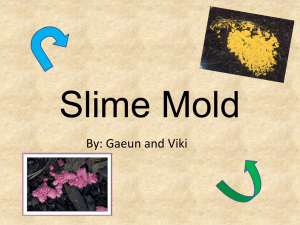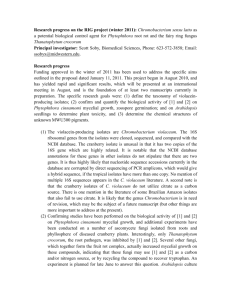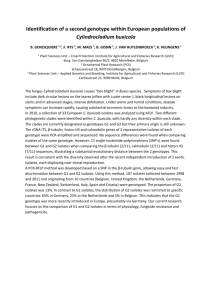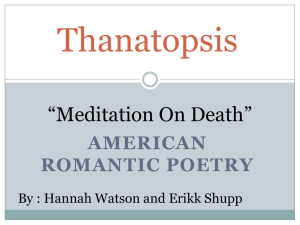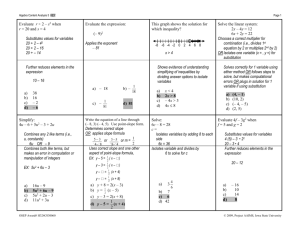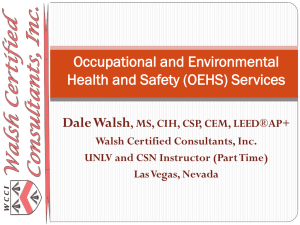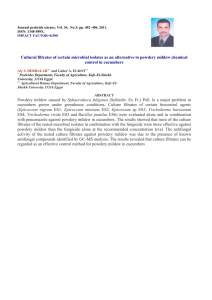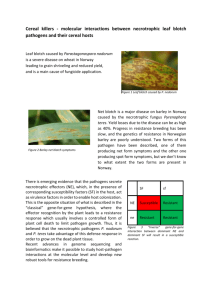research summary
advertisement
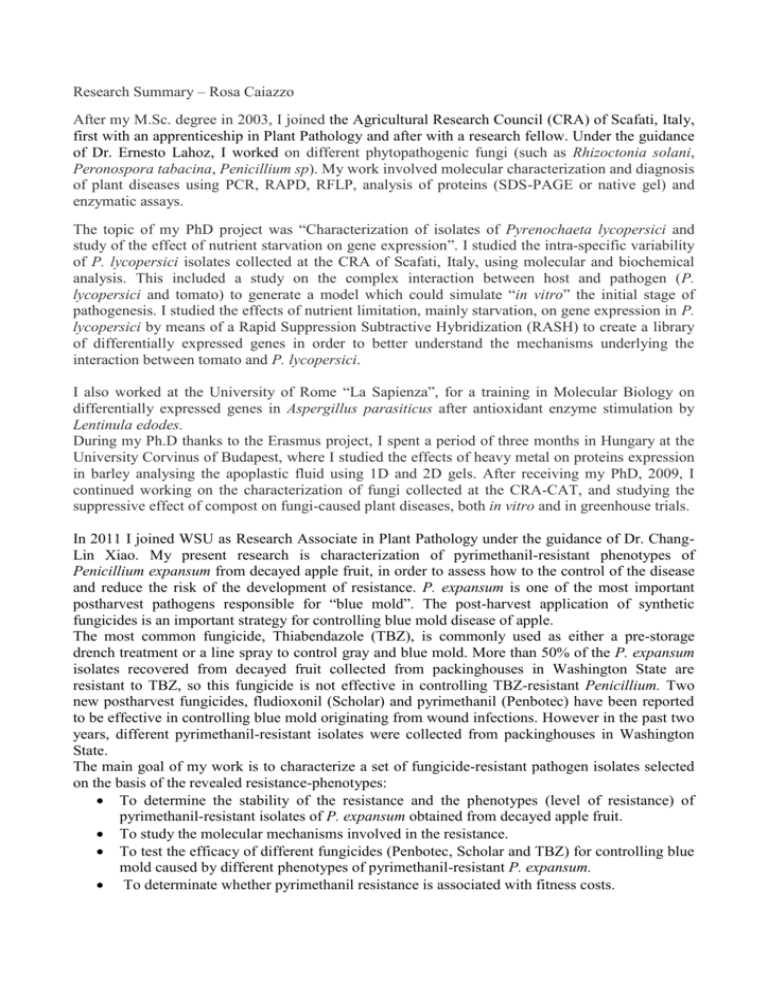
Research Summary – Rosa Caiazzo After my M.Sc. degree in 2003, I joined the Agricultural Research Council (CRA) of Scafati, Italy, first with an apprenticeship in Plant Pathology and after with a research fellow. Under the guidance of Dr. Ernesto Lahoz, I worked on different phytopathogenic fungi (such as Rhizoctonia solani, Peronospora tabacina, Penicillium sp). My work involved molecular characterization and diagnosis of plant diseases using PCR, RAPD, RFLP, analysis of proteins (SDS-PAGE or native gel) and enzymatic assays. The topic of my PhD project was “Characterization of isolates of Pyrenochaeta lycopersici and study of the effect of nutrient starvation on gene expression”. I studied the intra-specific variability of P. lycopersici isolates collected at the CRA of Scafati, Italy, using molecular and biochemical analysis. This included a study on the complex interaction between host and pathogen (P. lycopersici and tomato) to generate a model which could simulate “in vitro” the initial stage of pathogenesis. I studied the effects of nutrient limitation, mainly starvation, on gene expression in P. lycopersici by means of a Rapid Suppression Subtractive Hybridization (RASH) to create a library of differentially expressed genes in order to better understand the mechanisms underlying the interaction between tomato and P. lycopersici. I also worked at the University of Rome “La Sapienza”, for a training in Molecular Biology on differentially expressed genes in Aspergillus parasiticus after antioxidant enzyme stimulation by Lentinula edodes. During my Ph.D thanks to the Erasmus project, I spent a period of three months in Hungary at the University Corvinus of Budapest, where I studied the effects of heavy metal on proteins expression in barley analysing the apoplastic fluid using 1D and 2D gels. After receiving my PhD, 2009, I continued working on the characterization of fungi collected at the CRA-CAT, and studying the suppressive effect of compost on fungi-caused plant diseases, both in vitro and in greenhouse trials. In 2011 I joined WSU as Research Associate in Plant Pathology under the guidance of Dr. ChangLin Xiao. My present research is characterization of pyrimethanil-resistant phenotypes of Penicillium expansum from decayed apple fruit, in order to assess how to the control of the disease and reduce the risk of the development of resistance. P. expansum is one of the most important postharvest pathogens responsible for “blue mold”. The post-harvest application of synthetic fungicides is an important strategy for controlling blue mold disease of apple. The most common fungicide, Thiabendazole (TBZ), is commonly used as either a pre-storage drench treatment or a line spray to control gray and blue mold. More than 50% of the P. expansum isolates recovered from decayed fruit collected from packinghouses in Washington State are resistant to TBZ, so this fungicide is not effective in controlling TBZ-resistant Penicillium. Two new postharvest fungicides, fludioxonil (Scholar) and pyrimethanil (Penbotec) have been reported to be effective in controlling blue mold originating from wound infections. However in the past two years, different pyrimethanil-resistant isolates were collected from packinghouses in Washington State. The main goal of my work is to characterize a set of fungicide-resistant pathogen isolates selected on the basis of the revealed resistance-phenotypes: To determine the stability of the resistance and the phenotypes (level of resistance) of pyrimethanil-resistant isolates of P. expansum obtained from decayed apple fruit. To study the molecular mechanisms involved in the resistance. To test the efficacy of different fungicides (Penbotec, Scholar and TBZ) for controlling blue mold caused by different phenotypes of pyrimethanil-resistant P. expansum. To determinate whether pyrimethanil resistance is associated with fitness costs. I think that all research is interesting. I have worked with a number of different pathogens and hosts; it is interesting and challenging to adapt protocols to different plant/pathogen systems or to learn something new. My wide experience shows that I have been flexible in the range of research topics addressed in my career however I particularly enjoy the combination of field and molecular work.
